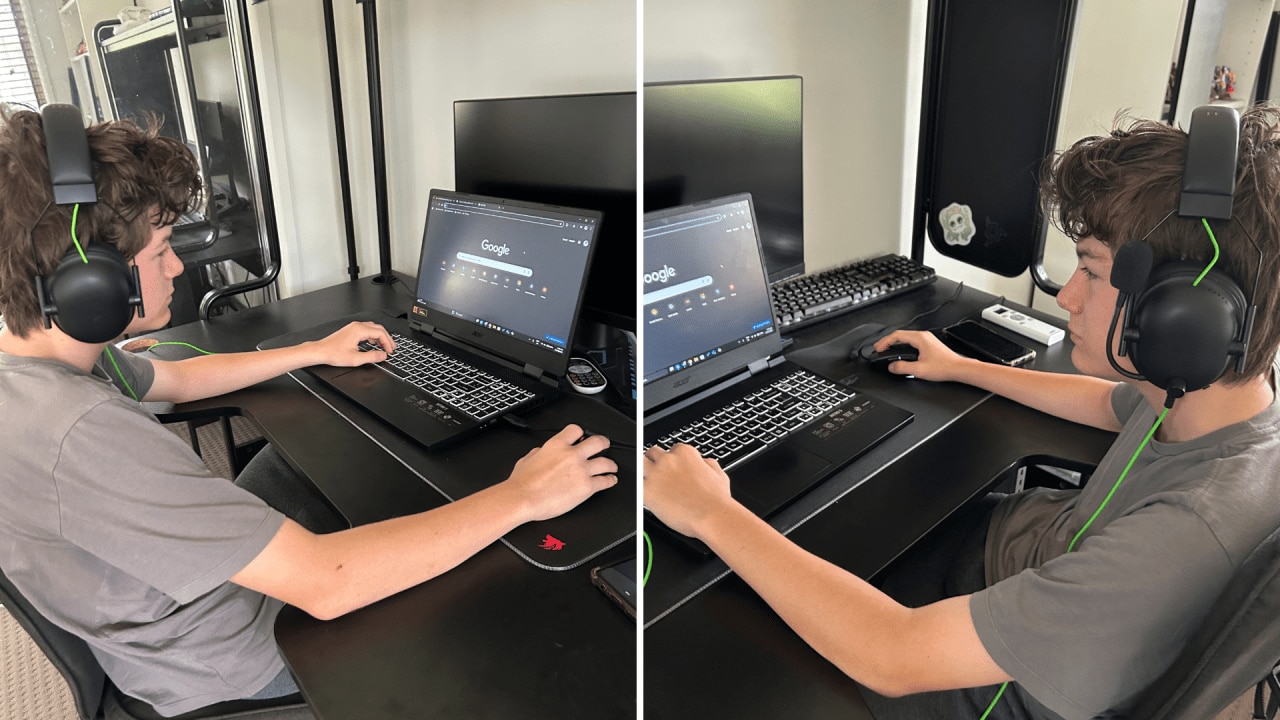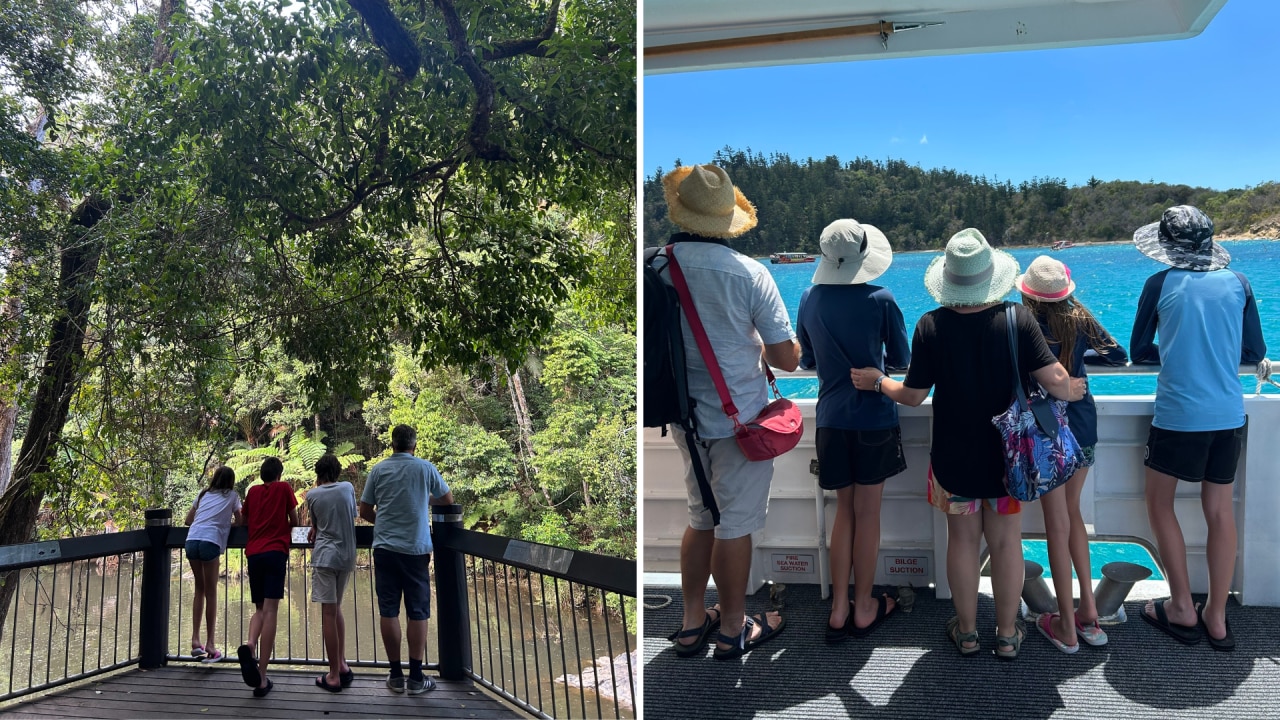'Group chats are the new playground – and they're dangerous'
"The written word is a lot riskier and has the power to do more harm - and that's just for starters."
When I was a teenager, the most high-tech form of communication I had was a landline with a curly cord that just about stretched far enough to let me sit on the stairs.
I’d sit on the uncomfortable bottom step for hours chatting to my best friend about our favourite music, who we fancied and gossiping about friendship dramas until one of my parents finally needed to use the phone and the time was up. That was it.
No screenshots. No chat history. No recordings. The words were lost as soon as they were spoken.
But today’s kids? They’re living in a digital world where nothing is ever really deleted, and communication is open all hours.
Want to join the family? Sign up to our Kidspot newsletter for more stories like this.
RELATED: The boring two words banned on TikTok for terrifying reason
Their conversations are permanent
The group chat is their new playground – only it's a lot riskier and has the power to do a lot more harm.
I’m a mum to twin teen boys who turn 16 this year, and a 12-year-old daughter who’s already begging me for access to Voice Chat and Discord.
The online world they’re growing up in is intense. They’re constantly connected – which sounds great, in theory. No more lonely evenings or begging for playdates and sleepovers. But that 24/7 access to mates is a double-edged sword.
Unlike our gossiping which disappeared down the phone line, their conversations are permanent. Their group chats can have 5, 10, sometimes 40+ other kids from school involved – some I know, many I don’t. And once something is said or sent, it can be screenshotted, forwarded, saved or used against someone in a way that’s hard to undo.
I trust my kids. I know all parents say that, but I have confidence that my kids will stand up for what’s right and lead with kindness. They have lovely mates. But I also know that group chats are where kids show off, test boundaries, try to be funny – and that’s when things can spiral. The pressure to be liked or noticed can make even the kindest kid say something dumb or cruel in the moment (but as we know, that throwaway comment doesn’t disappear anymore – it sticks!).

RELATED: 'Real or not?' The online threat kids are facing at school
We talk about what bullying is
We’ve had a lot of chats around our dinner table about this. Not in a lecture-y way (OK, sometimes in a bit of a lecture-y way as this whole new world scares the heck out of me!), but mostly just to open conversations about what’s going on online.
When something happens at school or in the news, we talk about it. A chat that went too far. A video that got shared. A message that got someone suspended or expelled. Somebody that killed themselves because of online bullying. It feels like every week there’s something new to discuss, and it breaks my heart as so many of these topics are sad and disturbing.
I want my kids to understand that even if they don’t feel like their comment is ‘bullying’, a joke about someone’s weight, hair colour, build, body or basically anything about a person that they might say off the cuff for a laugh can target someone’s insecurity that they may already be quietly battling.
My kids know this. We talk about it. We roleplay responses, we imagine how we’d feel to be on the receiving end. Because it’s so easy for kids to forget that words – especially typed words that lose their context and that don’t feel personal – land differently when there’s an audience or when you say them out loud. Or when somebody who is already vulnerable hears them.

The bystander effect in group chats
Then there’s the bystander effect. This is the hardest lesson to teach. That if you’re in a group chat, and something cruel, racist, sexist, hurtful or inappropriate is shared, and you say nothing - you’re part of the problem. That’s a big ask for teenagers who just want to fit in. Speaking up is hard. But it’s also important.
And when they can’t speak up safely in the group, I tell them to come to me or a teacher – don’t share it or add to the problem by getting involved, report it. They need a safe way to call things out.
As for my daughter, she’s watching all of this unfold and is desperate to join in. She feels left out when her friends talk about Discord chats and late-night voice calls. But I’m not ready for her to join this connected, digital world just yet (we’re hanging back getting her a phone for as long as possible). There’s a reason these platforms have age limits and although she’s approaching the entry point of 13, she’s still learning how to navigate her own emotions, let alone cope with someone else’s bad behaviour, mean comments or bullying online.
There’s no one-size-fits-all answer here. I’m definitely no expert - I’m winging it and learning as I go as this is all new territory for me. But what I do know is that keeping the conversation open is the important thing. We are raising our kids in a different world to the one we grew up in and it’s about equipping them with the skills and confidence to deal with it. I often tell them: before you send that message, ask yourself these questions: Would I be OK if my grandma read this message? Would I be OK if this was emailed to the whole school? Would I be OK if somebody said this about my sibling? Would my mum be proud of how I treated that person?
Group chats aren’t going anywhere. I’m grateful that virtual hangouts can happen from their bedrooms instead of me needing to be their taxi every single night (my poor parents weren’t so lucky!). More than anything, I’m glad the mistakes of my youth weren’t forever preserved like they are today. While this generation have gained some things, they’ve also lost others.
With great power comes great responsibility. If we want our kids to navigate this new digital age safely, we have to be in it with them - listening, guiding, learning, protecting, and constantly reminding them to lead with kindness.
More Coverage
Originally published as 'Group chats are the new playground – and they're dangerous'




